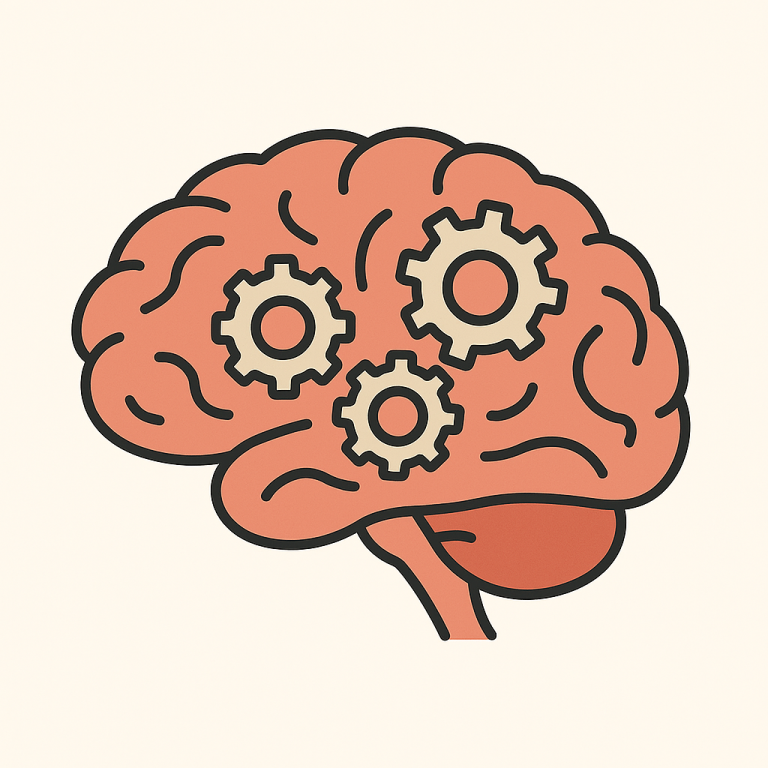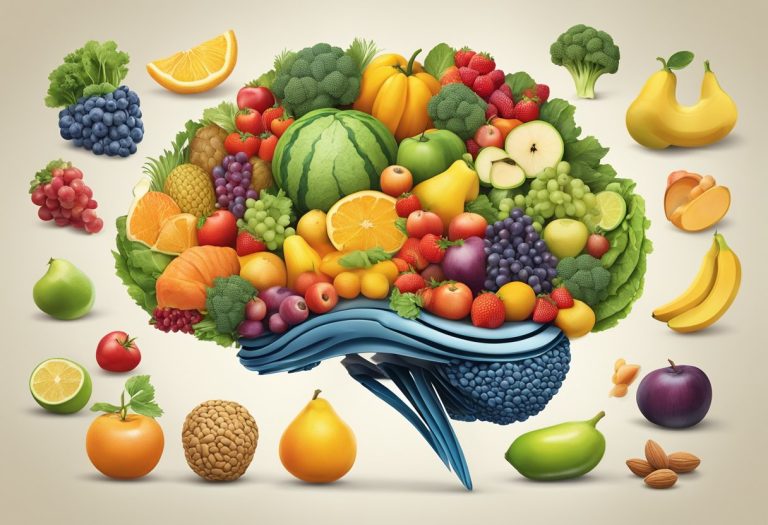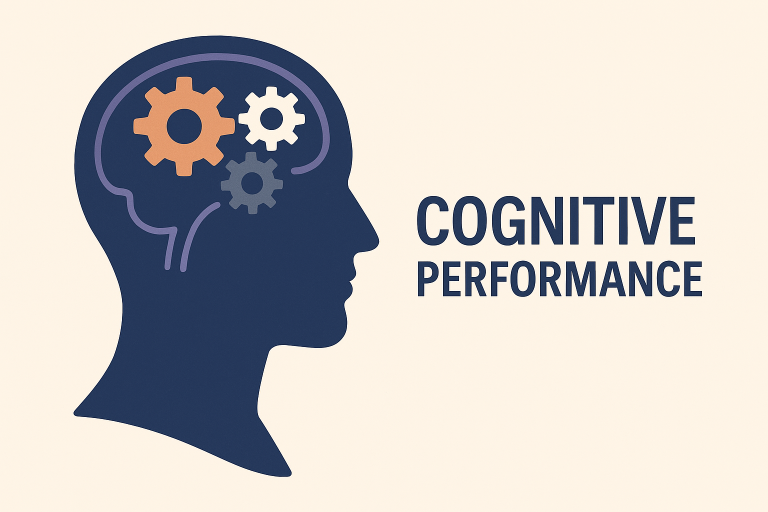Omega 3 Brain Benefits: How Essential Fats Support Cognitive Health
Many people want to know how to keep their minds sharp as they get older. Omega-3 fatty acids play a key role in supporting brain health at every age.
Research shows that omega-3s can help improve memory, support learning, and keep the brain functioning well.
Omega-3 fatty acids are found in foods like cold-water fish, walnuts, and flaxseeds. Studies link a healthy intake of omega-3s to better brain structure and stronger thinking skills, even in middle age.
Some research suggests that these nutrients may also help protect the brain from inflammation and support healthy blood flow, both of which are important for clear thinking and memory. Most people can get enough omega-3s by eating certain foods regularly, but some choose to take supplements for extra support.
For those who eat little seafood or want to give their brains the best chance as they age, learning about omega-3 brain benefits can make a real difference. To see more about how omega-3s can help with memory and cognition, read the summary of recent findings at this trusted health site.
What Are Omega-3 Fatty Acids?
Omega-3 fatty acids are a group of polyunsaturated fats found in foods like fish, nuts, and seeds. They play a key role in brain health, helping with learning, memory, and reducing inflammation.
Types of Omega-3s
Omega-3 fatty acids include several types, but three are the most important for the human body: alpha-linolenic acid (ALA), eicosapentaenoic acid (EPA), and docosahexaenoic acid (DHA).
ALA is found mostly in plant sources like flaxseeds, chia seeds, and walnuts. EPA and DHA come mainly from marine sources such as salmon, sardines, and mackerel.
EPA and DHA are especially important because the human body uses them more easily than ALA. The body can convert small amounts of ALA into EPA and DHA, but this process is not efficient.
For this reason, direct consumption of EPA and DHA from food or supplements is recommended for brain health.
Comparison Table: Main Omega-3 Types
| Type | Common Sources | Importance |
|---|---|---|
| ALA | Flaxseed, chia, walnuts | Plant-based, less usable |
| EPA | Salmon, sardines | Marine, supports mood |
| DHA | Salmon, mackerel | Marine, key for brain |
DHA and EPA Explained
DHA (docosahexaenoic acid) and EPA (eicosapentaenoic acid) are the two main omega-3s found in fatty fish and seafood. DHA is a major part of the brain’s structure, making up part of cell membranes in nerve cells.
It is especially important for babies’ brain growth and supports learning and vision throughout life. EPA’s main job is to help control inflammation in the body.
It may help support mood and cognitive functions, according to several studies. Together, DHA and EPA help keep the brain healthy and may improve memory and focus in adults.
Many experts recommend eating cold-water fish or taking fish oil supplements to get enough DHA and EPA. Several studies show that omega-3s can preserve brain health and may enhance cognitive performance.
Docosahexaenoic Acid vs. Eicosapentaenoic Acid
Docosahexaenoic acid (DHA) and eicosapentaenoic acid (EPA) are both long-chain polyunsaturated fats, but they have different roles in the body. DHA is more abundant in the brain and is vital for building and repairing brain cells.
It helps nerve signals travel quickly. EPA, on the other hand, is more involved in reducing swelling and balancing mood.
While both types are important, DHA is generally seen as more essential for brain development and function. EPA can still help with cognitive health by lowering inflammatory signals, which may protect against some mental decline.
Getting a mix of both DHA and EPA through diet or omega-3 supplements offers the most support for the brain and body.
How Omega-3s Support Brain Health
Omega-3 fatty acids play a role in brain health by affecting multiple cognitive processes. They are linked to positive changes in memory, learning, and focus based on both research and clinical studies.
Role in Cognitive Function
Omega-3 fatty acids are important for the structure of brain cells. They help keep cell membranes flexible, which allows brain cells to communicate more effectively.
This communication is key for cognitive functions such as reasoning, thought processing, and decision making. Research shows that people who consume more omega-3s tend to have better cognitive well-being.
In particular, higher omega-3 intake is connected to slower cognitive decline as people age. Some data suggest omega-3s can even impact brain blood flow, which supports better brain function.
More details on this can be found in reviews about omega-3’s effects on brain functions.
Influence on Learning and Memory
Omega-3s help improve how the brain forms and recalls memories. They do this by supporting neuron growth and allowing for easier connections between nerve cells.
This can help with learning new information and recalling it later. In studies, omega-3 supplements have shown promise in improving memory in people with mild memory loss or cognitive impairment.
Some research links regular intake of fish or other sources of omega-3s to healthier brain structures and better cognitive test performance. Details can be seen in articles about omega-3’s link to cognition and brain structure.
Key benefits of omega-3 for memory and learning include:
- Support for the brain’s ability to adapt (neuroplasticity)
- Reduced inflammation that can harm neurons
- Improved memory, especially in aging adults
Impact on Attention
Omega-3 fatty acids can influence how well people pay attention and stay focused. They help regulate neurotransmitters like dopamine and serotonin, which play roles in attention and mood.
Low levels of omega-3s are linked to more difficulty with attention and focus. Some research points to improvements in attention and task performance when omega-3 intake is increased.
This has been seen in both younger and older people. For example, children and adults with attention concerns might benefit from omega-3 supplementation.
Studies mention that increasing omega-3s could support brain signaling, making it easier to concentrate and remain alert during daily tasks.
Developmental Benefits of Omega-3s
Omega-3 fatty acids have a key influence on early brain growth, memory, and vision. These nutrients are especially important for children and pregnant women, as well as for healthy eye and retina development.
Cognitive Development in Children
Omega-3s, especially DHA, play a vital role in the development of the brain during childhood. Research shows that children who consume enough omega-3s may have better reading skills, learning abilities, and memory.
Some studies have shown improvements in literacy and learning in children with lower baseline skills who were given omega-3 supplements. DHA supports the structure and function of nerve cells in the brain.
This helps with communication between brain cells, which is essential for attention, problem-solving, and behavior. Regular intake of omega-3s, often found in fatty fish and some fortified foods, can help children’s brains develop properly.
Children with diets low in omega-3s may be at higher risk for developmental delays and learning challenges, as described in research on childhood brain development and omega-3s.
Maternal Supplementation and Pregnancy
Pregnant women need higher levels of omega-3s, especially in the later stages of pregnancy. DHA from the mother is transferred to the baby through the placenta, which supports the baby’s brain and nervous system growth.
Women who include enough omega-3s in their diets can help ensure better cognitive and emotional health for their babies. Studies suggest that maternal omega-3 intake is linked with higher scores in tests measuring a child’s attention, memory, and problem-solving abilities.
Some guidelines recommend that pregnant women eat two servings of low-mercury fish per week, or take a supplement if needed. This transfer of omega-3s during pregnancy is critical for the baby’s brain and may even have long-lasting effects into adulthood, as shown in studies on maternal nutrition and child brain health.
Visual and Retina Development
DHA is highly concentrated in the retina, which is the part of the eye that senses light and sends images to the brain. Omega-3s are needed for the normal development of vision in infants.
Research highlights that a diet rich in DHA during pregnancy and early life supports sharper vision and healthy eye structure. Infants whose mothers get enough omega-3s during pregnancy and breastfeeding are more likely to have healthy retinal development.
Key functions supported by DHA include clear vision, faster response to visual signals, and better long-term eye health for the child. Omega-3s may also help protect against certain visual problems as children grow, making them an essential nutrient for mothers and young children, as seen in research about omega-3s and vision development.
Omega-3s and Neurodegenerative Diseases
Omega-3 fatty acids help the brain in different ways as people get older. Studies show they offer important benefits for memory, thinking skills, and brain structure, especially in adults.
Alzheimer’s Disease
Alzheimer’s disease leads to memory loss and changes in behavior. EPA and DHA, two main types of omega-3s, are highly concentrated in the brain.
Researchers found that omega-3s can protect brain cells and help lower the chance of developing neurodegenerative conditions like Alzheimer’s.
Key benefits:
- Support for brain cell health
- Reduce inflammation in the brain
- Promote better connections between brain cells
Some studies report that people who eat more omega-3s from fish or supplements may have a lower risk of Alzheimer’s disease. Clinical findings also suggest these fats can help slow the process behind memory loss and brain shrinking in early stages of the disease.
For more details, see this article about omega-3s and brain health.
Dementia Prevention
Dementia is a group of symptoms that affect memory, reasoning, and daily life. Omega-3 fatty acids are linked to helping prevent cognitive decline.
They may help keep brain cells healthy as a person ages. This is important in lowering the risk of dementia.
How omega-3s may help:
- Protecting nerve cells from damage
- Supporting blood flow in the brain
- Boosting communication between neurons
Recent research found that eating omega-3-rich foods, like cold-water fish, can improve brain structure and cognitive skills at midlife.
Dietary Sources of Omega-3s

Omega-3 fatty acids are found in both animal and plant foods. The type and amount of omega-3s can vary depending on the source, which can affect how well the body uses them.
Oily Fish and Seafood
Oily fish are the richest sources of long-chain omega-3s, especially EPA and DHA. Common options include salmon, mackerel, sardines, anchovies, and herring.
These fish store omega-3s in their fat, making them valuable for heart and brain health. Experts recommend eating two servings of fatty fish per week.
Shellfish like oysters and mussels also give some omega-3s but in smaller amounts. Choosing fish that are low in mercury, such as wild-caught salmon, lowers health risks.
| Fish Type | Omega-3 per 3 oz (grams) |
|---|---|
| Salmon | 1.2–1.8 |
| Mackerel | 1.0–1.5 |
| Sardines | 1.0–1.5 |
| Anchovies | 1.0 |
Plant-Based Sources
Plant foods usually contain a different type of omega-3 called ALA (alpha-linolenic acid). While ALA is not as directly used by the brain as EPA and DHA, the body can convert a small part of it to these forms.
Flaxseed stands out as one of the highest plant-based sources of omega-3s. Other good options are chia seeds, walnuts, and hemp seeds.
Including these foods in meals like oatmeal or smoothies is simple and effective. Some vegetable oils, such as canola and soybean oil, also provide ALA.
However, the conversion from ALA to DHA and EPA is limited. People following a vegan or vegetarian diet often need to eat more of these foods to meet their needs.
List of common plant-based omega-3 sources:
- Flaxseed (whole or ground)
- Chia seeds
- Walnuts
- Soybeans and tofu
Supplementation Options
For those who do not eat enough fish or seafood, nutritional supplements are a convenient way to get omega-3s. The most popular supplements are fish oil capsules, which provide EPA and DHA in concentrated form.
There are also algae-based supplements for people who prefer a plant-based option. Algae oil delivers DHA and some EPA, making it a good choice for vegans and vegetarians.
Most supplements are taken daily and come in different dosages, so it’s important to read the label and follow the instructions. Fish oil supplements may help support brain function, especially for those with low dietary omega-3s.
People should check with a doctor before starting supplements if they have health concerns or take medication. Quality and purity are important, as some low-quality supplements may have contaminants.
Comparing Omega-3s and Omega-6s
Omega-3 and omega-6 fatty acids are both important for the body, but the amounts people eat can affect health. Keeping a healthy balance between them helps support the brain and may lower the risk of some health problems.
Balance in Dietary Patterns
Most diets in the United States and other Western countries contain much more omega-6 than omega-3 fats. Foods rich in omega-6, such as vegetable oils (corn, soybean, sunflower oil), processed foods, and some nuts and seeds, are very common.
Omega-3 fats mostly come from fatty fish, flaxseed, and walnuts. Experts often recommend a lower omega-6 to omega-3 ratio.
Many modern diets can have a ratio of 15:1 or higher, but a healthier range is closer to 4:1 or even 1:1. This lower ratio may help support cognitive function and brain health because it supports normal cell activity in the brain.
A balanced diet might include:
- Replacing high omega-6 oils with options like olive oil
- Adding fatty fish twice a week
- Including flaxseed or walnuts
Health Implications of Fatty Acid Ratios
A high intake of omega-6 compared to omega-3 may raise the risk of inflammation and certain long-term diseases. Studies suggest that eating too many omega-6s and not enough omega-3s could impact heart and brain health over time.
Omega-3s, especially EPA and DHA, are linked to better cognitive function, blood flow in the brain, and mental well-being. High omega-6 levels, without enough omega-3 intake, may limit some of these positive effects.
Maintaining a balanced ratio can help reduce the chance of mental health issues and support overall brain development. People can benefit from reading food labels, eating more fish or plant-based omega-3s, and choosing foods that naturally support this healthy fatty acid balance.
Wider Health Benefits of Omega-3s
Omega-3 fatty acids are linked to clearer heart arteries and support critical functions in the eyes. These nutrients help maintain important systems in the body that keep people healthy as they age.
Cardiovascular and Heart Health
Omega-3s are best known for their role in heart protection. They help lower levels of triglycerides, a type of fat in the blood that can raise the risk of heart disease.
Regular intake of omega-3s can reduce blood pressure slightly in people with high blood pressure. They also support healthy blood vessels by reducing plaque buildup, which can help prevent blockages that may lead to heart attacks or strokes.
Doctors often recommend eating fish like salmon, sardines, or mackerel at least twice a week. These fish are rich in omega-3s and can help lower the chances of developing heart problems such as arrhythmias and heart failure.
Omega-3s are also linked to lower inflammation, which plays a part in most heart and blood vessel diseases. For people who don’t eat much fish, omega-3 supplements are sometimes used, but getting these fats through foods is generally considered the best choice.
More details can be found in this article on omega-3 heart health.
Eye Health
Omega-3 fatty acids are a major part of the structure of the eye, and they play a key role in keeping vision clear. A specific type called DHA is found in high amounts in the retina.
Getting enough omega-3s in the diet may help protect against age-related macular degeneration (AMD), a leading cause of vision loss in older adults. Some studies have also suggested that omega-3s may help reduce the symptoms of dry-eye syndrome, making eyes more comfortable.
Children also need enough omega-3s for healthy eye development. People who eat fish regularly may have a lower risk of certain eye diseases.
For more information, see this overview of omega-3s and eye health.
| Nutrient | Main Benefit | Food Source |
|---|---|---|
| EPA/DHA | Heart/eye health support | Fatty fish, supplements |
| ALA | Overall cell function | Flaxseed, walnuts |
Latest Research and Innovations
Scientists continue to learn more about how omega-3 fatty acids affect brain health. Companies are responding with new products and targeted nutrition formulas that aim to support memory and cognition.
Recent Scientific Findings
New clinical trials show that high levels of omega-3s may slow breakdown in brain cells, especially in older adults and people with a family history of Alzheimer’s disease. For example, a three-year clinical trial found fish oil rich in omega-3s gave a statistically significant benefit to people at risk for Alzheimer’s, suggesting it may help protect memory as people age.
Read more about the study on statistically significant benefit for those predisposed to Alzheimer’s.
Other studies indicate that not all supplements work the same. Doses below 1 gram per day seem to have weaker effects on the brain, while higher doses may be needed for noticeable benefits.
High-dose omega-3 intake is also linked to improvement in certain thinking and mood symptoms in people with depression. This shows the broad potential use of omega-3s in mental health care.
Industry Advances
Nutrition companies are now offering customized products that target specific brain health concerns.
dsm-firmenich, a leader in nutritional solutions, is focusing on developing omega-3 formulas with improved purity and higher concentrations.
Their aim is to make it easier for consumers to get effective levels of omega-3 fatty acids through foods or supplements.
Product innovations also include easier-to-take formats like gummies and liquids.
These options can help people who struggle with large capsules.
Companies are using research data to guide how much omega-3 to include in each serving.
Many brands also highlight the importance of EPA and DHA, the two main omega-3s shown to help brain health.
This focus on clear labeling and science-based claims helps consumers make informed choices about omega-3 supplements for cognitive support.







